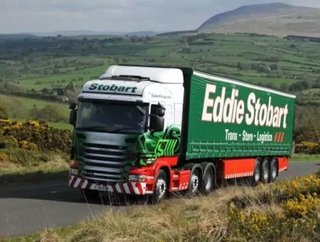BOC and Stobart expand use of low-carbon HGVs

Logistics specialists the Stobart Group are teaming up with , the UK’s largest supplier of compressed and liquefied gases, in an effort to promote the benefits of Liquified Natural Gas (LNG) as a low-carbon fuel alternative for heavy goods vehicles (HGVs)
As part of a £23 million programme co-ordinated by the Government’s Technology Strategy Board, the project aims to encourage road haulage operators in the UK to buy and use low carbon commercial vehicles.
BOC, which is a member of the Linde Group, will provide refuelling facilities for the Eddie Stobart fleet of dual-fuel vehicles at one of the Stobart Group’s regional hubs with scope for other operators to use the facilities.
SEE RECENT STORIES FROM THE WDM CONTENT NETWORK:
IEA warn of the dangers of losing US trade route
FTR estimates truckers will recoup losses from Sandy
Royal Mail announces £75mil expansion
BOC has developed a highly-efficient, ‘no-loss’ technology, using its expertise in cryogenic cooling technology to temperature-condition the fuel just prior to dispensing. This ensures that no fuel is lost to evaporation and venting during the refuelling process. Typically, 20 percent – and sometimes more – can be lost with more conventional systems, so this represents a major cost and carbon saving to users. The design and engineering of the new LNG dispensing systems have gas-leak detection sensors linked to automatic shutdown protocols and other innovative safety features.
The new systems are backed up by the global expertise of The Linde Group which operates LNG supply systems in other parts of the world, including Scandinavia, Australia and the USA.
The systematic evaluation of the vehicles and the refuelling technologies in the field, as an integrated part of a large vehicle fleet, will help identify potential further refinements of the technology and provide opportunities to improve sustainability in the logistics sector.
BOC’s Director of Bulk and Packaged Gases, Nathan Palmer, said: “Minimising fuel losses when refuelling will make a major improvement to the already strong environmental credentials of LNG as a transport fuel. This project will allow us and the Stobart Group to quantify just what is possible with this technology.”The project will track the usage of LNG – which typically accounts for up to 65-70 percent of total fuel consumption for a dual-fuel vehicle – as well as the reduction in CO2 emissions. It will also provide an opportunity to rigorously assess BOC’s innovative refuelling technology.
The fuel
BOC has developed a highly-efficient, ‘no-loss’ technology, using its expertise in cryogenic cooling technology to temperature-condition the fuel just prior to dispensing. This ensures that no fuel is lost to evaporation and venting during the refuelling process. Typically, 20 percent – and sometimes more – can be lost with more conventional systems, so this represents a major cost and carbon saving to users. The design and engineering of the new LNG dispensing systems have gas-leak detection sensors linked to automatic shutdown protocols and other innovative safety features.
The new systems are backed up by the global expertise of The Linde Group which operates LNG supply systems in other parts of the world, including Scandinavia, Australia and the USA.
The systematic evaluation of the vehicles and the refuelling technologies in the field, as an integrated part of a large vehicle fleet, will help identify potential further refinements of the technology and provide opportunities to improve sustainability in the logistics sector.
BOC’s Director of Bulk and Packaged Gases, Nathan Palmer, said: “Minimising fuel losses when refuelling will make a major improvement to the already strong environmental credentials of LNG as a transport fuel. This project will allow us and the Stobart Group to quantify just what is possible with this technology.”






